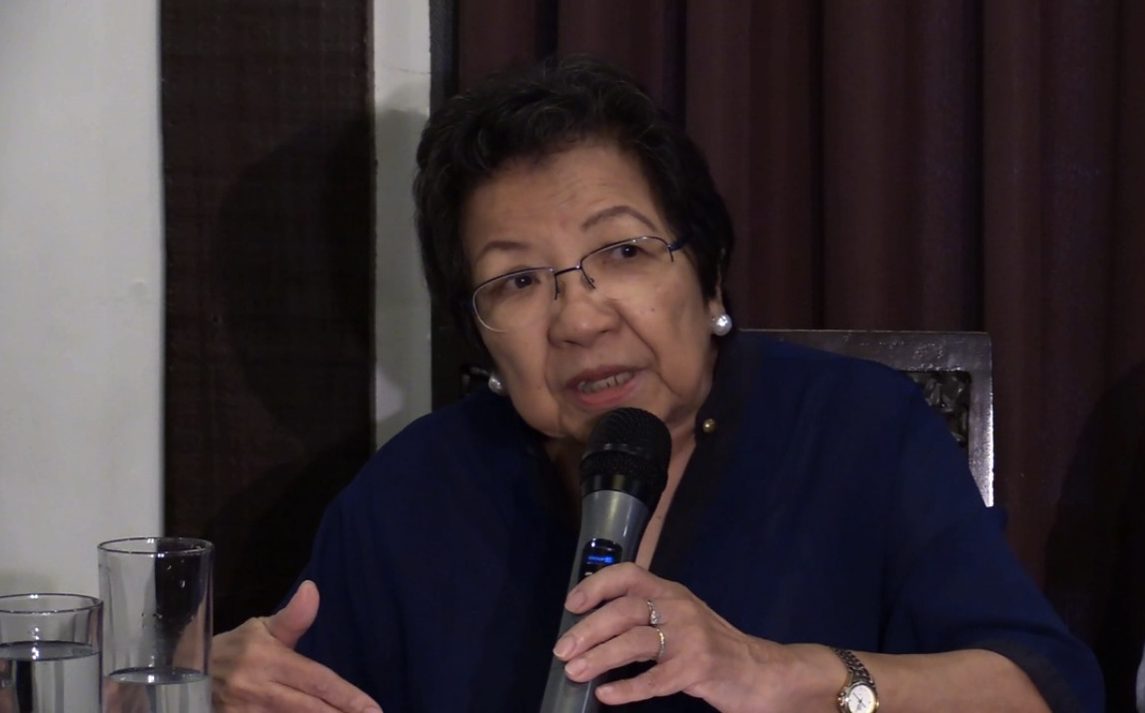Warning up on possible PH loss of trade perk from EU

The Akbayan party-list has warned the Duterte administration against the European Union’s (EU) possible removal of the General System of Preference Plus (GSP+) status from the Philippines, which would affect $9.5 billion tariff-free potential annual exports to EU amid human rights issues hounding the government’s drug war.
Akbayan Rep. Tom Villarin and former Commission on Human Rights (CHR) Chair Etta Rosales said there is a call to review within EU the GSP+ preferential treatment to the Philippines, which provides zero tariff to around 6,200 export products, mainly agricultural products coming from Mindanao.
Villarin said European Parliament member Neena Gil proposed a review of the status of the GSP+ following the blacklisting and deportation of Party of European Socialists deputy secretary-general Giacomo Filibeck, who criticized President Rodrigo Duterte’s drug war in 2017.
The Akbayan officials said if the Philippines is stripped of its GSP+ status, it may result to a loss of $9.5-billion worth of annual potential exports and loss of around 200,000 jobs mostly in Mindanao.
“The EU Parliament has actually warned us that… if extrajudicial killings (EJKs) will not stop, death penalty will push through in Congress, and lowering of age criminal liability of children will push through, they are going to withdraw the GSP+ status,” Rosales said in a press briefing on Tuesday in Quezon City.
“If the President continues to insist on these EJKs and on the policy of the failed drug war I think the blame would be entirely on the Duterte government,” Villarin said, noting that the EU accounts for the country’s second largest export partner.
EU’s possible withdrawal of the preferential status, Villarin said, “would be a slap in the face of the Philippines” in the international community, “considering EU is a strong voice in the global community when it comes to human rights and international relations.”
Aside from this, Rosales said the country would be “politically-isolated and morally-discredited” before the international community.
“Mr. Duterte is allergic to human rights because it’s an obstacle to his dreams, to his war on drugs, but this war on drugs is killing the people he wanted to protect,” Rosales said. “We will be politically-isolated and morally-discredited, and we don’t want that to happen.”
Villarin said the GSP+ status which was instituted to the Philippines in 2014, benefitted the country because it gave it “competitive advantage” against other exporters.
And with its possible removal, he said some local exporters may no longer export to EU member-states.
“Either ‘yung iba ‘di na mag-export sa EU dahil ang profitability ay na-lessen, or ‘yung iba practically would no longer be exporting to the EU. It would hurt our Philippine exporters, and may result to potential loss of jobs and the marketability of our products would be affected, hindi naman madali mag-shift ng market eh,” Villarin pointed out.
The lawmaker said he is poised to deliver a privilege speech on the issue and consequently file a resolution on it when Congress resumes session.
“Akbayan will file a resolution asking the Duterte admin to look at this from a broader and balanced perspective,” he said.
In a resolution passed last April 19, the European Parliament (MEP) condemned the alleged extrajudicial killings that targeted mainly the poor in the antidrug campaign, the continued detention of Sen. Leila de Lima and the threats against human rights defenders, including Victoria Tauli-Corpuz, the United Nations special rapporteur on the rights of indigenous peoples, among others.
It also urged the EU and its member-states to “consider calling for” the removal of the Philippines from the United Nations Human Rights Council.
EU reso based on wrong info
But Foreign Affairs Secretary Alan Cayetano slammed the resolution as based on “biased, incomplete and even wrong information and does not reflect the true situation on the ground.”
“It is really disappointing that European lawmakers have allowed themselves to be influenced and manipulated by certain interest groups in the Philippines and abroad who have politicized and weaponized human rights as part of their efforts to undermine the legitimately installed government of President Duterte,” Cayetano said.
READ: Palace slams EU criticism of drug war
As part of the Philippines’ commitment under GSP+, the EU and the Philippines have an ongoing commitment to implement 27 international conventions on human and labor rights, the environment and good governance.
A European Commission report in January stated that the right issues hounding the Philippine government remained of “serious concern” to them.
These issues include the alleged extrajudicial killings being linked to the campaign against illegal drugs, the related impunity of those implicated in the killings, the possible reintroduction of the death penalty, and the lowering of the age of criminal responsibility./ac
READ: Rights issues in PH remain of ‘serious concern’ – EU report
